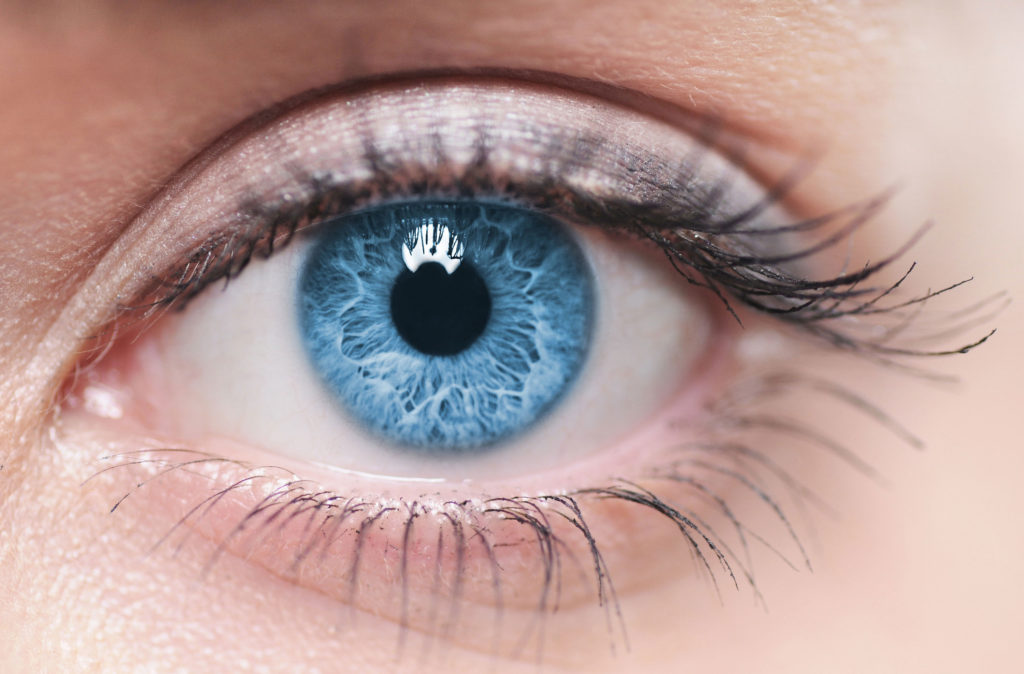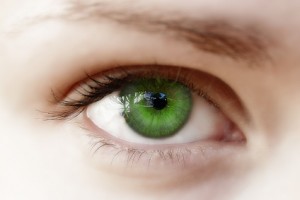eye health
Charles Bonnet syndrome – what are the cause, signs, symptoms and treatments of Charles Bonnet syndrome?
In Charles Bonnet syndrome, a person whose vision has started to deteriorate sees things that aren’t real (hallucinations).
The hallucinations may be simple patterns, or detailed images of events, people or places. They’re only visual and don’t involve hearing things or any other sensations.
It’s important to be aware that hallucinations associated with Charles Bonnet syndrome are caused by failing eyesight. They’re not caused by a mental health problem or dementia.
People with Charles Bonnet syndrome are usually aware that the visions aren’t real, even if they’re vivid.
Always see your GP if you’re experiencing hallucinations so they can investigate the cause.
Types of hallucination
There are two main types of hallucination that people with Charles Bonnet syndrome tend to experience. They may see:
simple repeated patterns
complex images of people, objects or landscapes
Simple repeated patterns can take the form of grids, shapes or lines, which can appear in bright or vivid colours. The patterns may lay across or cover everything the person sees.
More complex hallucinations can involve people, places, animals and insects. Most people don’t see hallucinations of people they know or past events they’ve experienced.
The hallucinations aren’t usually unpleasant or threatening, but they may be slightly frightening when first experienced. The can sometimes occur out of the blue, and can last for a few minutes or several hours. They may be moving or static.
Who’s affected and why?
Charles Bonnet syndrome affects people who’ve lost most or all of their eyesight. It’s more likely to occur if vision loss affects both eyes.
According to the Macular Society, up to half of all people with macular degeneration – a gradual loss of central vision – may experience Charles Bonnet hallucinations at some time. It’s thought there are more than 100,000 cases in the UK.
People of any age can be affected by Charles Bonnet hallucinations, but they tend to occur later in life after a person starts to lose their sight. The hallucinations often begin when a person’s sight suddenly deteriorates.
The main cause of Charles Bonnet syndrome is thought to be vision loss and how the brain reacts to it. It’s not clear how loss of vision leads to hallucinations, but research is beginning to help us better understand the relationship between the eyes and the brain.
When a person starts to lose their sight, their brain doesn’t receive as much information as it used to. It’s thought the brain sometimes responds by filling in the gaps with fantasy patterns or images that it’s stored. These stored images are experienced as hallucinations.
What effect can hallucinations have?
Visual hallucinations are a normal response the brain has to the loss of vision.
However, as Charles Bonnet syndrome isn’t widely known, many people worry about what it means and fear they may be developing a serious mental illness or dementia.
It can also cause practical problems. People who see complex hallucinations may find it difficult to get around.
Streets and rooms may be distorted, and brickwork or fencing may appear directly in front of you, making it difficult to judge exactly where you are and whether you can walk straight ahead.
Some people can overcome this problem by having good knowledge of their surroundings.
Complex hallucinations can be unsettling. Although the visions may not be frightening, it can be disturbing to suddenly see strangers in your home or garden.
For most people, the hallucinations will improve over time, with episodes becoming shorter and less frequent. Recent evidence suggests most people will still have occasional hallucinations five years or more after they first started.
If the hallucinations do stop entirely, there’s always a chance they’ll reappear after a further decline in vision.
Diagnosing Charles Bonnet syndrome
There isn’t a specific test for Charles Bonnet syndrome. Doctors diagnose it by:
talking to the person about their symptoms
taking a detailed medical history
in some cases, carrying out tests to rule out other possible causes of hallucinations, such as Alzheimer’s disease
If a person has vision loss and they’re experiencing simple or complex hallucinations and they don’t have signs of dementia or mental illness, they probably have Charles Bonnet syndrome.
Treating Charles Bonnet syndrome
There’s currently no cure for Charles Bonnet syndrome.
Simply understanding that the hallucinations are a normal consequence of vision loss, rather than a mental health problem, can be very reassuring and help the person cope better.
No specific medication has been shown to stop hallucinations caused by Charles Bonnet syndrome. Some medications that are designed to treat epilepsy, Parkinson’s disease and dementia have proved effective for some people.
However, these powerful medications can have serious side effects, and are therefore only recommended for people who are severely affected and under close supervision.
Self-help measures
You could try some self-help measures to help relieve your hallucinations when you experience them. For example, when a hallucination starts, you could:
change the lighting conditions to see if it disappears – for example, if you’re in a dimly lit area, switch on more lights or move to somewhere that’s brighter; if in a brightly lit area, make it dimmer
move your eyes from left to right – do this once every second 15 times without moving your head, then pause for a few seconds and repeat; it’s worth trying this up to four or five times
stare at the image and blink rapidly or reach out to touch the vision – try this for a few seconds
move around or perform a task – for example, get up to make a cup of tea
make sure you’re well rested and are getting enough sleep at night – the hallucinations may be worse when you’re tired or stressed
Some people overcome their fear by getting to know the figures in their visions.
For example, one man with Charles Bonnet syndrome has described how when he wakes up in the morning, he says, “Right, what have you got in store for me today?” to the figures he’s seeing. This allows him to have some control over the way he feels about his visions.
Help and support
If you have Charles Bonnet syndrome, talking about your hallucinations and how they make you feel may help you cope better. You could try talking to your family, friends, GP, optician, or ophthalmologist.
Mental health professionals, such as counsellors, psychologists or psychiatrists, may also be able to help if you’re finding the hallucinations particularly upsetting.
Although Charles Bonnet syndrome isn’t a mental health condition, many mental health professionals have experience of helping people come to terms with hallucinations. Your GP should be able to refer you to your local mental health team.
Read more about counselling and psychotherapy.
There aren’t many specific support groups and forums for people affected by Charles Bonnet syndrome, but there are lots of support groups for people with vision loss.
The Macular Society runs a buddy service for people affected by Charles Bonnet syndrome, where they can put you in touch with someone who’s also experienced visual hallucinations for support and reassurance. Their helpline is available on 0300 30 30 111, Monday to Friday, 9am to 5pm.
Esme’s Umbrella, an awareness campaign for Charles Bonnet syndrome, has a website with links to information and helpful resources for both patients and healthcare professionals.
The Royal National Institute of Blind People (RNIB) also has more information and advice about Charles Bonnet syndrome.
6 Things Your Eyes Say About Your Health
Eyes are considered as mirrors to your soul, but they can also be described as mirror to your health. Your eyes reflect everything that’s going on in your body. And you have probably noticed that; for example when you’re healthy your eyes have that “sparkle”, on the other hand, when you’re feeling sick your eyes seem heavy and sick as well. Throughout this article, we’ll list things that your eyes say about your health.
- Thinning eyebrows
If you notice that outer third of your eyebrows (parts closest to your ears) is slowly disappearing, without plucking etc., then you might have a thyroid disease: either overactive thyroid gland (hyperthyroidism) or underactive thyroid gland (hypothyroidism). Thyroid gland is essential for your overall health as it regulates your metabolism. Furthermore, thyroid hormones are crucial for hair production.
Problems with thyroid disease usually include loss of hair on different parts of body, but since eyebrows are prominent, this occurrence is usually noticed here first. If you notice your eyebrows are thinning, you should consult your health-care provider or dermatologist. Furthermore, before your appointment, list all body changes that occurred recently.
- Persistent stye
Small, slightly raised, and sometimes reddish bump that you notice along the inner or outer eyelid margin is, in fact, a stye. They aren’t dangerous. However, if this little bump is persistent and won’t go away even after three months then you might have a form of a rare cancer, sebaceous gland carcinoma.
How to tell them apart? That’s easy, although they look quite similar; styes go away within a month. On the other hand, carcinoma is persistent. You should consult an appointment and consult your ophthalmologist.
- Grey ring around the cornea
If you, or someone you know, developed a grey ring around your cornea it could indicate problems with cholesterol and higher levels of triglycerides. The arcus senilis, the grey ring, could mean you have high chances of suffering from cardiovascular diseases or stroke. Ideally, you should do a blood test to check for elevated blood lipids.
- Cloudy eye(s)
Noticing cloud-like formation in one or both of your eyes indicates cataract. The condition is more prevalent in older people and can be successfully eliminated through surgical procedure. However, in some cases younger people can develop cataracts as well. It usually happens due to side effects of some medications, diabetes, tumors etc.
- Pupils of different sizes + droopy eyelids
If you notice that your eyelids became droopy and pupils have different sizes, you should definitely consult your doctor immediately. These symptoms could indicate presence of Homer’s syndrome which is associated with aneurysms and tumors in your neck.
- Twitching
When you feel like your eye is twitching, and you can’t really control it, it’s quite uncomfortable and annoying, but nothing dangerous. Twitching usually occurs when you are stressed out, sleep-deprived, or if you had too much coffee during the day. Twitching usually goes away by itself. However, if you feel like parts of your face are twitching with your eye, then you should consult your doctor as problem could be more severe.
Tips for healthy and younger-looking eyes
When we’re getting ready to go to work or go out on Saturday night, we spend most of our time making our eyes pop. When we’re not going out, we use masks or cucumber slices to relax the sensitive skin around the eyes. Healthy and pretty eyes are crucial for the overall appearance. Here are some tips that you could find useful:
- Eye cream – skin around your eyes is sensitive and needs special care. Eye creams are formulated to nourish and protect this sensitive skin to make it prettier and healthier. If you don’t know how to choose the eye cream here are some tips:
- For puffiness go for product with caffeine or cucumber
- For dark circles opt for cream with vitamins C and K, kojic acid and licorice
- For fine lines you should make sure cream has collagen-boosting ingredients such as retinol
- If you have thin eyelashes, instead of wasting money on mascaras that promise to plump up the volume, you can opt for eyelash growth products
- Wear sunglasses and hats
- Quit smoking
- Exercise
- Don’t spend too much time staring at computer screen.
Conclusion
Your eyes reflect all changes that happen in your body. Therefore, as soon as you notice some changes in or around your eyes you should consult your health-care provider as these changes could be a sign of an underlying medical problem. Ideally, lifestyle fitness, healthy nutrition, and products formulated for your eyes are ideal for making them look healthy and pretty at all times.
Must watch this video: 3 Wonderful Tips for Long and Luscious Eyelashes You Should Know
Embed code:
References
1. http://goweloveit.info/general/how-to-accelerate-the-growth-of-your-eyelashes/
2. http://www.mybeautygym.com/5-tips-eyelashes-longer/
Author Bio
Margaux Diaz is Health and Beauty Expert. She has interest in building knowledge and self – confidence of people who really want to improve their Life by proper Health guide and stay fit for life time. She is an inspirational writer and has written numerous Articles related to Health and Beauty. Connect with her on Facebook and Twitter
8 great tips for healthy eyes -check out this brilliant infographic
Are you seeing things clearly?- submit for questions here for next weeks show on eye health and how to spot possible eye problems
Log on to our live and interactive web TV show where Consultant Ophthalmic and Refractive Surgeon Khalid Ikram talks about some common eye health myths and gives advice on how to look after your eye health and spot potential problems
It’s something many of us take for granted, but good eye health is by no means guaranteed and while age is a key factor in the deterioration of our eyesight and the health of our eyes, there are many more factors that can contribute.
According to a survey conducted by Spectrum Thea 94% of Optometrists don’t think as a nation we take our eye health seriously or take care of our eyes as much as we should.
Our reliance on computers and digital devices as well as things like diet, alcohol consumption and smoking can all have an impact.
And if, like millions of Brits, you’re not getting your eyes tested regularly, then you may not even be aware that you have a problem.
To help spot the signs log on to our live and interactive web TV show where Khalid Ikram discusses some common eye myths, demonstrates exercises to help your vision and answers all your questions on how to keep your eyes healthy.
Click here to submit questions before the show
Khalid Ikram, Consultant Ophthalmic and Refractive Surgeon and Janet Peacock joins us live online at
on Monday 22nd September at 1pm





